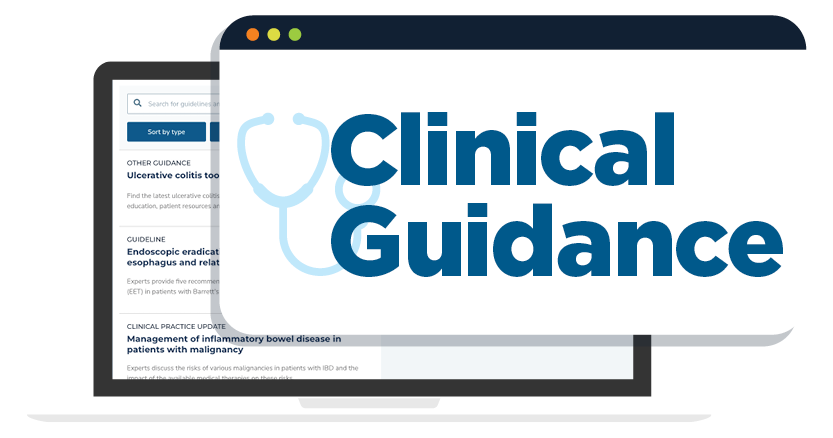1. To optimize GI and liver disease before pregnancy, preconception and contraceptive care counseling by a multidisciplinary team should be encouraged for reproductive-aged persons who desire to become pregnant.
2. Procedures, medications, and other interventions to optimize maternal health should not be withheld solely because a patient is pregnant and should be individualized after an assessment of the risks and benefits.
3. Coordination of birth for a pregnant patient with complex IBD, advanced cirrhosis, or a liver transplant should be managed by a multidisciplinary team, preferably in a tertiary care center.
4. Early treatment of nausea and vomiting of pregnancy may reduce progression to hyperemesis gravidarum. In addition to standard diet and lifestyle measures, stepwise treatment consists of symptom control with vitamin B6 and doxylamine, hydration, and adequate nutrition; ondansetron, metoclopramide, promethazine, and intravenous glucocorticoids may be required in moderate to severe cases.
5. Constipation in pregnant persons may result from hormonal, medication-related, and physiological changes. Treatment options include dietary fiber, lactulose, and polyethylene glycol–based laxatives.
6. Elective endoscopic procedures should be deferred until the postpartum period, whereas nonemergent but necessary procedures should ideally be performed in the second trimester. Pregnant patients with cirrhosis should undergo evaluation for, and treatment of, esophageal varices; upper endoscopy is suggested in the second trimester (if not performed within 1 year before conception) to guide consideration of nonselective β-blocker therapy or endoscopic variceal ligation.
7. In patients with IBD, clinical remission before conception, during pregnancy, and in the postpartum period is essential for improving outcomes of pregnancy. Biologic agents should be continued throughout pregnancy and the postpartum period; use of methotrexate, thalidomide, and ozanimod must be stopped at least 6 months before conception.
8. ERCP during pregnancy may be performed for urgent indications, such as choledocholithiasis, cholangitis, and some cases of gallstone pancreatitis. Ideally, ERCP should be performed during the second trimester, but if deferring the procedure may be detrimental to the health of the patient and fetus, a multidisciplinary team should be convened to decide on the advisability of the procedure.
9. Cholecystectomy is safe during pregnancy; a laparoscopic approach is the standard of care regardless of trimester, but ideally in the second trimester.
10. The diagnosis of intrahepatic cholestasis of pregnancy is based on a serum bile acid level >10 μmol/L in the setting of pruritus, typically during the second or third trimester. Treatment should be offered with oral ursodeoxycholic acid in a total daily dose of 10–15 mg/kg.
11. Management of liver diseases unique to pregnancy, such as pre-eclampsia; hemolysis, elevated liver enzymes, and low platelets syndrome; and acute fatty liver of pregnancy requires planning for delivery and timely evaluation for possible liver transplantation. Daily aspirin prophylaxis for patients at risk for pre-eclampsia or hemolysis, elevated liver enzymes, and low platelets syndrome is advised beginning at week 12 of gestation.
12. In patients with chronic hepatitis B virus infection, serum hepatitis B virus DNA and liver biochemical test levels should be ordered. Patients not on treatment but with a serum hepatitis B virus DNA level >200,000 IU/mL during the third trimester of pregnancy should be considered for treatment with tenofovir disoproxil fumarate.
13. In patients on immunosuppressive therapy for chronic liver diseases or after liver transplantation, therapy should be continued at the lowest effective dose during pregnancy. Mycophenolate mofetil should not be administered during pregnancy.












